A Maryland Lawmaker's Paradigm-Shifting Approach to the Heroin and Pain Pill Crisis [FEATURE]
With nearly 47,000 Americans dying of drug overdoses in 2014 -- more than from gunshots or car crashes -- the problem of heroin and prescription opioid (pain pill) addiction is getting well-deserved attention. From community town halls to state capitals, as well as in Congress and on the rival presidential campaigns, the crisis is spawning demands for solutions.
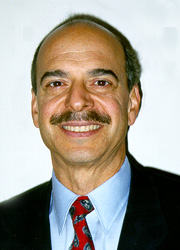
But addicts continue to be arrested, with all the deleterious consequences that entails, and, when it comes to policy, the problem of addiction remains largely in the realm of criminal justice. Harm reduction practices proven in other parts of the world improve both the lives of drug users and those of the communities they live in continue to be shunted aside in the US.
That could change in at least one state. Veteran Maryland Delegate Dan Morhaim (D-Baltimore County) has just introduced a paradigm-shifting package of bills that would begin to move the state's posture toward drug use from prohibition to public health and harm reduction. Morhaim, a practicing physician with three decades of frontline hospital ERs, brings to his approach a vision formed by that experience.
If enacted, Morhaim's package would mark a radical, but commonsensical, humane, and scientifically-supported shift in Maryland's drug policies. Here's what it includes:
- Emergency Room Treatment on Demand. House Bill 908 provides treatment on demand in emergency rooms and hospital settings. The bill requires acute care hospitals to have a counselor available or on-call at all times and specified arrangements for transferring patients to appropriate treatment settings. Addicted patients make up a large percentage of uninsured visits to ERs, making them an ideal place for initial therapeutic contact.
- Safe Consumption Sites. House Bill 1212 allows individuals to use drugs in approved facilities while supervised by trained staff who also provide sterile equipment, monitor the person for overdose and offer treatment referrals. Similar on-going programs in Australia, Canada, and several European countries have eliminated overdose deaths, reduced the spread of disease, and provided points of accessto the most hard-to-reach drug users.
- Drug Decriminalization. House Bill 1219 decriminalizes the possession and use of small quantities of drugs: one gram of meth or heroin, two grams of cocaine, 10 hits of MDMA, 150 micrograms of LSD. The object is to keep otherwise non-criminal drug users out of the criminal justice system, saving resources and avoiding saddling more residents with criminal records.
- Heroin Maintenance. House Bill 1267 allows a four-year pilot study of "poly-morphone assisted treatment" with pharmaceutical grade opioids, including heroin, to treat under medical supervision a small number of hardcore users who have proven resistant to other forms of treatment. Ongoing heroin maintenance programs in several European countries have been shown to reduce illegal drug use, decrease crime, reduce the black market for heroin, and lead to less chaotic lives for their participants.
The package didn't exactly come out of nowhere. Morhaim's experiences in the ER, where he dealt not only with direct consequences of drug use -- overdoses, infections -- but also direct consequences of drug prohibition -- old women injured in muggings for black market drug money, the toll of dead and wounded in black market drug turf battles -- colored his approach.

He wasn't alone.
"I've had a lot of conversations, and my district has generally been very supportive of these kind of innovative things. No negative feedback. There's a broad consensus that the war on drugs is a failure," Morhaim said. "People are really cognizant of that. And I'm an Emergency Room physician at a Level II trauma center, I've also done healthcare for the homeless. I've been on the front lines, seen the carnage, the death, the violence, and the way this affects the families, and I'm speaking from true experience, and people respect that."
Not only did Morhaim have support in his community, he had support from a strong group of advocates and experts.
"As things were coming to a head, Delegate Morhaim reached out to us at the Drug Policy Alliance (DPA)," said DPA staff attorney Lindsay LaSalle, who was involved in developing the proposals. "He said he felt like he could offer progressive solutions to the crisis and he wanted our subject matter expertise to help develop those proposals."
DPA, Law Enforcement Against Prohibition (LEAP), whose executive director, Neill Franklin, is a former Baltimore police officer, and the Open Society Foundations joined with academics, lawyers, doctors, and harm reductionists to develop and refine the policy proposals that became the bill package. Local institutions of higher learning, including the University of Maryland, the University of Baltimore, and Johns Hopkins University, had academics involved in the effort as well.
Passing the bills won't be easy, and it's not likely to happen this year, but Morhaim and his supporters are playing to win in the not-too-distant future.
"Dan is currently on the second year of a four year term," LaSalle said. "These bills were introduced strategically this term with the understanding that it would be a year of educating colleagues and generating positive media coverage. This is always a long game; we don't expect passage this year, but we hope to gain traction on one or more of these in the next two or three years."
"I've been in the legislature a long time, and I've learned you just have to be persistent, you listen and address concerns, maybe you accept an amendment to a bill," Morhaim said.
He pointed to the successful effort to get medical marijuana through the legislature.
"On that, people had suggestions, and we said let's fix it in the bill," he recalled. "Law enforcement didn't oppose it because I sat down and worked with them."
He also recalled legislative battles he had fought -- and won -- around smoking in restaurants and the use of safety seats for children.
"Banning smoking in restaurants seemed impossible in 1995, but now it's commonplace," he said. "The same with kids safety seats. Both of those were hard-fought on the political level, but when we talk to people, we can convince them. These things take time, but when you recognize what's not working, then you can explore what is. People are looking for answers."
Although Morhaim's package of bills is the most comprehensive, explicit harm reduction interventions are being considered in other places, too. California will see a safe consumption site bill introduced next week, and activists and officials in a number of cities, including New York City, San Francisco, and Seattle are laying the groundwork for such facilities at the local level.
"We're getting traction on these issues," said LaSalle. "Nevada was the first state with a heroin-assisted treatment bill, and while it didn't get out of committee, we had robust hearings, with international experts. And that California bill will be moving forward this session. Drug treatment and harm reduction don't always go hand in hand, but in this case the treatment community is cosponsoring or officially supporting safe consumption sites."
Meanwhile, some states are moving in the opposite direction. In Maine, the administration of Tea Party Gov. Paul Le Page (R) is seeking to reverse a law passed last year that defelonized drug possession. (The rambunctious Republican has also called for guillotining drug dealers, blamed black drug dealers for impregnating white Maine girls, and called for vigilantes to shoot drug dealers.) And next door in New Hampshire, the attorney general wants to start charging heroin suppliers with murder in the event of fatal overdoses. Prosecutors in other states have also dusted off long-unused statutes to bring murder or manslaughter charges.
"We need to ask those people why they're doubling down on a failed policy," said LaSalle. "Why would this work now when it's just more of the same that's been in place for four decades, and now we have use and overdoses and Hep C increasing."
"I understand the impulse to 'Do Something!' in response, and because criminalization has been our go-to response, it seems logical that increasing penalties or prosecutions is a way to solve the problem, but we know, we have shown, that it is not. It's frustrating."
It can be worse than frustrating, too, LaSalle noted.
"Using murder charges as a whipping stick in the case of overdoses is really counterproductive," she said. "If the goal is to reduce overdoses, this is going to reduce the likelihood of anyone calling 911. Maybe they shared their stash, and if they could face murder charges, they now have a serious disincentive to call."
Clearly, the war on drugs is not over. But after half a century of relying predominantly on the forces of repression to deal with drug use, a new vision, both smarter and more humane, is emerging. Now comes the political fight to enact it.
Could Kratom Be a Better Choice for Heroin and Pain Pill Users? [FEATURE]
This article was produced in collaboration with AlterNet and first appeared here.
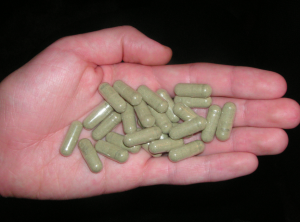
It is regulated as an herbal supplement, not a controlled substance, but it is coming under some scrutiny by lawmakers and regulators. The FDA banned its import in 2014, and the DEA has it listed as a drug of concern, but has not moved to criminalize it. It is illegal in four states, though -- Indiana, Tennessee, Vermont and Wyoming -- and similar laws are now being proposed in Florida and New Jersey.
The stuff is called kratom, and was traditionally used in Thailand and Malaysia to help endure physical labor, relieve pain, and stop diarrhea. It was also good for relieving the symptoms of opium withdrawal.
That's because its active ingredients activate the same opioid receptors heroin and prescription pain pills do. And it behaves like an opiate -- with a couple of exceptions, one interesting and one quite important.
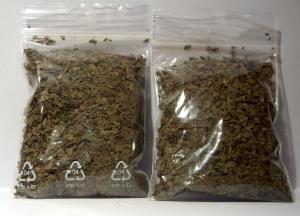
"Direct kratom overdoses from the life-threatening respiratory depression that usually occurs with opioid overdoses have not been reported," says Oliver Grundmann, clinical associate professor of medicinal chemistry at the University of Florida, told journalist Maia Szalavitz at Vice. Grundmann should know; he just reviewed the research on kratom for the International Journal of Legal Medicine.
"It's a fascinating drug, but we need to know a lot more about it, Dr. Edward W. Boyer, a professor of emergency medicine at the University of Massachusetts Medical School and a co-author of several scientific articles on kratom, told the Times. "Recreationally or to self-treat opioid dependence, beware -- potentially you're at just as much risk" as with an opiate.
Well, except for that whole fatal overdose thing. And like the kratom high, the physical dependence appears much milder.
Szalavitz consulted Mark Swogger, an assistant professor of psychiatry at the University of Rochester Medical Center, who with his colleagues analyzed 161 "experience reports" posted by kratom users on the drug information site Erowid.org for a recent study in the Journal of Psychoactive Drugs.
"I think it's pretty safe to say that kratom has at least some addiction potential. The data is fairly strong on that and our study also found that people are reporting addiction," but "overall, we found that it's really mild compared to opioid addiction and it didn't seem to last as long."
About one in six of the users reported nausea or stomach pain and 6% actually vomited. There have been a handful of other handful of reports of liver problems.
All this makes kratom something like opium's mild-mannered little sister. And that is apparently something a lot of people are looking for.
One of them was Susan Ash, 46, who told the Times she began taking kratom while being treated for dependence on prescription pain relievers and now takes a small dose daily to ease chronic pain and depression.
She was so impressed with the results that last year, she founded the American Kratom Association to represent consumers. The group now has more than 2,000 members and lobbies against bills to ban the herb.
"We know from all our experiences that kratom has the potential to be a wonderful medicine," she said. "We're all experiencing that it's changing our lives. We do agree that more science is needed to actually prove this potential that we know it has."
Yes, more science is needed, and kratom does have its disaffected users, as the Times was quick to dig up, but so far, it looks like we have a drug like opium, but with attenuated effects. If people are taking kratom to get off heroin or prescription pills or to treat pain or just to get a nice buzz, and they're not overdosing by the tens of thousands, as they are with the opiates, that would seem like an overall good thing. If we want to reduce harm from heroin and prescription opiates, kratom should be studied and, perhaps, embraced, not proscribed.
Medical Marijuana Update
Medical marijuana bills are moving in Florida and Utah, and new bills are popping up as state legislatures get down to business.

Last Thursday, a bill to expand access to CBD cannabis oil was introduced. Rep. Mike Ball (R-Madison County) has introducedHouse Bill 61, which would expand access to CBD beyond a limited study program at the University of Alabama-Birmingham. The new bill would allow parents with a valid recommendation for CBD cannabis oil to possess it in the state.
Delaware
Last Thursday, a bill to allow CBD cannabinoid oil use by kids in school was introduced. Sen. Ernie Lopez (R-Lewes) has filed Senate Bill 181, which would allow authorized caregivers to possess and administer CBD cannabis oil to pupils in school as needed.
Florida
On Tuesday, a medical marijuana bill reemerged. A bill that would allow terminally ill patients to use medical marijuana has come out of hibernation in the House. After months on the sidelines, the bill, House Bill 307, was approved by the House Appropriations Subcommittee on a 9-2 vote. It now needs one more committee vote before heading for the House floor.
Iowa
On Tuesday, a medical marijuana bill was filed. State Rep. Peter Cownie (R-West Des Moines) filed a bill that would make it legal to grow medical marijuana, produce CBD cannabis oil, and create dispensaries. The bill is not yet on the legislative website. Republican lawmakers last year killed similar legislation.
South Dakota
Last Wednesday, a medical marijuana initiative failed to make the ballot. A proposed initiative from New Approach South Dakota has come up short on signatures and will not qualify for the November ballot. The group needed nearly 14,000 valid voter signatures to qualify, but, based on a sampling of 5% of the 16,000 signatures handed it, state officials said only slightly more than half were valid, leaving the group with only 9,000 valid signatures. New Approach South Dakota has 30 days to challenge the findings.
Last Friday, a medical marijuana bill was filed. State Sen. Angie Buhl O'Donnell has filed Senate Bill 167, which would legalize the use of marijuana for medical reasons. The bill was filed one day after the deadline for filing new bills, but lawmakers agreed to waive the rules after state officials rejected a medical marijuana initiative for lack of valid signatures.
Utah
Last Friday, medical marijuana and CBD cannabis oil bills were on the move. Two medical marijuana-related bills are headed for the Senate floor after winning committee votes. Senate Bill 73, filed by Rep. Mark Madsen (R-Saratoga Springs), would allow whole plant medical marijuana, while Senate Bill 89, sponsored by Sen. Evan Vickers (R-Cedar City), would expand on CBD cannabis legislation passed last year.
[For extensive information about the medical marijuana debate, presented in a neutral format, visit MedicalMarijuana.ProCon.org.]
This Week's Corrupt Cops Stories
It's jail and prison guards gone wild this week! Most did their misdeeds for profit, but at least one did hers for love. Let's get to it:

In Fort Bend, Texas, a Fort Bend County sheriff's jail guard was arrested Monday for smuggling illegal drugs into the jail. Naveed Muhammed Islam, 19, went down after an internal investigation into allegations of a crooked guard at the jail. He is charged with bringing prohibited substances into a correctional facility, a third-degree felony.
In Charlotte, North Carolina, two former sheriff's officers and two prison guards pleaded guilty Tuesday to a drug dealing conspiracy in which 14 others have already pleaded guilty. The crew went down after undercover officers posed as members of a drug-dealing operation looking for crooked cops to aid their cause. Former Northampton County sheriff's captain Jason Boone and former lieutenant Jimmy Pair, Jr., both pleaded guilty to drug conspiracy and bribery charges. The two prison guards were not named.
In Cedar Rapids, Iowa, a former Anamosa State Prison guard was sentenced last Wednesday to four years in federal prison for smuggling drugs, cell phones, and other contraband in to prisoners. Garrett Barton, 29, admitted not only to smuggling contraband, but also to being high while armed as a tower guard. He copped to one count of a Hobbs Act extortion under color of official right (accepting bribes).
In Memphis, four Shelby County deputy jailers were sentenced last Friday after being caught up in a sting involving smuggling what they thought was Oxycontin into the jail. Anthony Thomas got one month in prison, and Marcus Green, Brian Grammer, and Torriano Vaughan were sentenced to a year and a day. The four went down after an inmate alerted officials of the guards' willingness to subvert the law, and officials then set up the sting.
Chronicle AM: Fed Bill Would Allow MJ Ad Mailings, Far-Reaching MD Bills Filed, More... (2/5/16)
Oregon's federal representatives fight to protect marijuana advertising, medical marijuana and CBD bills are moving in the states, a Maryland delegates files bills for drug treatment on demand, supervised injection sites, opiate maintenance (including heroin), and drug decriminalization -- quite a package! -- and more.
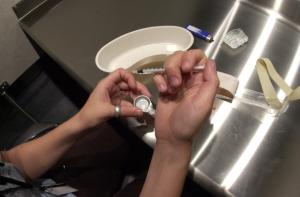
Oregon Federal Reps File Bill to Allow Published Marijuana Ads. Responding to warnings from the US Postal Service that mailing newspapers or magazines with marijuana advertising is prohibited even in states where it is legal, Oregon's two Democratic senators, Ron Wyden and Jeff Merkley, have joined with two Democratic House members, Earl Blumenauer and Suzanne Bonamici, to file the Marijuana Advertising in Legal States (MAILS) Act (HR 4467). The bill would reverse the USPS policy. "Federal agencies must respect the decisions made by law-abiding Oregonians and small business owners in the state," Wyden said. "Our bill updates the federal approach to marijuana, ending the threat to news publications that choose to accept advertising from legal marijuana businesses in Oregon and other states where voters also have freely decided to legalize marijuana."
Michigan Legalization Campaign Getting Close to Signature Goal. The MILegalize campaign says it has already collected some 240,000 raw signatures and is seeking another 100,000 to ensure a comfortable cushion for invalidated signatures. The state requires 252,000 valid voter signatures to qualify for the November ballot.
Medical Marijuana
Alabama Bill Would Expand Access to CBD Cannabis Oil. Rep. Mike Ball (R-Madison County) has introduced House Bill 61, which would expand access to CBD beyond a limited study program at the University of Alabama-Birmingham. The new bill would allow parents with a valid recommendation for CBD cannabis oil to possess it in the state.
Delaware Bill Would Allow CBD Cannabis Oil for Kids in Schools. Sen. Ernie Lopez (R-Lewes) has filed Senate Bill 181, which would allow authorized caregivers to possess and administer CBD cannabis oil to pupils in school as needed.
Utah Medical Marijuana, CBD Cannabis Oil Bills Move. Two medical marijuana-related bills are headed for the Senate floor after winning committee votes. Senate Bill 73, filed by Rep. Mark Madsen (R-Saratoga Springs), would allow whole plant medical marijuana, while Senate Bill 89, sponsored by Sen. Evan Vickers (R-Cedar City), would expand on CBD cannabis legislation passed last year.
Kratom
Florida Bill to Ban Kratom Advances. A bill that would ban the increasing popular Southeast Asian herb, which some are using as an alternative to opiates or as a means to withdraw from them, has passed the House Criminal Justice Subcommittee. The bill, House Bill 73, would make possession of kratom a misdemeanor. A similar measure seeking to make possession a felony failed last year.
New Synthetic Drugs
Kentucky Bill to Toughen Penalties for New Synthetic Drugs Advances. A bill that would increase penalties for possessing or selling new synthetic drugs has passed the House Judiciary Committee. The bill is House Bill 66.
Drug Policy
Maryland Bill Package Attempts Comprehensive Drug Decriminalization, Harm Reduction Approach. A set of four bills being filed today would upend the way the state deals with drug use and related problems. One bill would provide for drug treatment on demand in emergency rooms and hospital settings, a second bill would allow for safe injection facilities (there are currently none in the US), a third bill would allow for opiate maintenance therapy, including with heroin, and a fourth bill would decriminalize the use and possession of personal use quantities of illicit drugs. The package is being sponsored by Delegate Dan Morhaim (D-Baltimore County).
Drug Testing
Utah Bill Would Repeal Welfare Drug Testing Law. Since Utah approved a welfare drug testing law, only 47 applicants out of nearly 14,000 have tested positive for drugs. That's enough for Rep. Angela Romero (D-Salt Lake City) to call for an end to the program. Her House Bill 172 would do just that. It is currently before the House Economic Development and Workforce Services Committee.
Chronicle AM: RI Legalization Bills, More Philly Dope Cases Thrown Out, More... (2/8/16)
New England is turning into a real marijuana legalization hotspot as Rhode Island is set to become the latest state in the region to try to free the weed, the South Dakota legislature will take up medical marijuana after an initiative failed to make the ballot, Philadelphia's "tainted justice" policing scandals undoes more drug convictions, and more.

Rhode Island Legalization Bills to Be Filed This Week. Rep. Scott Slater (D-Providence) says he will file a marijuana legalization bill in the General Assembly this week, and Sen. Joshua Miller (D-Cranston) will file companion legislation in the Senate.
Medical Marijuana
South Dakota Medical Marijuana Initiative Fails to Make Ballot. A proposed initiative from New Approach South Dakota has come up short on signatures and will not qualify for the November ballot. The group needed nearly 14,000 valid voter signatures to qualify, but, based on a sampling of 5% of the 16,000 signatures handed it, state officials said only slightly more than half were valid, leaving the group with only 9,000 valid signatures. New Approach South Dakota has 30 days to challenge the findings.
South Dakota Medical Marijuana Bill Filed. State Sen. Angie Buhl O'Donnell has filed Senate Bill 167, which would legalize the use of marijuana for medical reasons. The bill was filed last Friday, one day after the deadline for filing new bills, but lawmakers agreed to waive the rules after state officials rejected a medical marijuana initiative for lack of valid signatures.
Drug Testing
Tennessee Welfare Drug Test Program Finds Very, Very Few Positives. In line with the experience of other states that have embarked on public benefits drug testing schemes, Tennessee's program has had just 65 people test positive out of 39,121 tested. Another 116 people refused to participate in drug screening, disqualifying them from benefits. The state has spent $23,592 on drug testing so far.
Law Enforcement
More Philadelphia Drug Cases Overturned, Thanks to Crooked Cops. A judge last Friday quickly overturned 51 old drug convictions brought by a tainted Philadelphia Police drug unit. The six officers in the dope squad managed to win acquittals on federal corruption charges, but prosecutors and judges still consider their cases tarnished. With Friday's dismissals, the number of convictions overturned or cases dismissed has climbed to 699. Several hundred more convictions could be overturned in the coming months.
Chronicle AM: WVA Welfare Drug Test Bill Advances, ME Voters Want Drug Decrim, More... (2/9/16)
Medical marijuana bills get filed not only in Iowa, but also Australia and Greece, a new poll shows enlightened drug policy attitudes among Maine voters, Republican US senators hold competing events for and against sentencing reform legislation, and more.
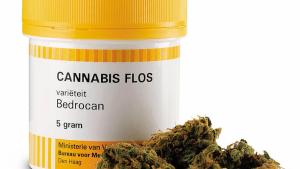
Florida Medical Marijuana Bill Reemerges. A bill that would allow terminally ill patients to use medical marijuana has come out of hibernation in the House. After months on the sidelines, the bill, House Bill 307, was approved by the House Appropriations Subcommittee Tuesday on a 9-2 vote. It now needs one more committee vote before heading for the House floor.
Iowa Medical Marijuana Bill Filed. State Rep. Peter Cownie (R-West Des Moines) Tuesday filed a bill that would make it legal to grow medical marijuana, produce CBD cannabis oil, and create dispensaries. The bill is not yet on the legislative website. Republican lawmakers last year killed similar legislation.
Drug Policy
Maine Voters Support Drug Decriminalization, Not Punitive Drug Policies, Poll Finds. Nearly two-thirds (64%) of voters support decriminalizing drug possession, according to a new poll conducted by Public Policy Polling. More than seven out of 10 (71%) said substantially reducing incarceration rates was important to them. The poll comes as the state's Tea Party governor, Paul Le Page (R), is pushing legislation that would roll back reforms passed last year that make simple drug possession a misdemeanor instead of a felony.
West Virginia Senate Passes Welfare Drug Testing Bill. The Senate overwhelmingly (32-2) approved Senate Bill 6, which would create a three-year pilot program to drug test applicants for the Temporary Assistance for Needy Families (TANF) program if state employees have "reasonable suspicion" they are using drugs. "Reasonable suspicion" can be triggered by applicants demonstrating "qualities indicative of substance abuse" or having been arrested on a drug charge in the past five years. The bill now goes to the House of Delegates.
Law Enforcement
Massachusetts Bill Would Let Users Turn in Drugs Without Fear of Punishment. Rep. Ann-Margaret Ferrante (D-Gloucester) has filed a bill that would allow addicts seeking treatment to turn in unwanted drugs without the threat of prosecution. A person "who, in good faith, enters a police station and seeks assistance or treatment for a drug-related addiction, or is the subject of a good faith request for such assistance or treatment, shall not be charged or prosecuted for possession of a controlled substance" if the evidence for such a charge was gained as a result of seeking treatment. The bill is before the Joint Judiciary Committee.
Sentencing
Republican Senators and Law Enforcement Leaders Rally for Federal Sentencing Reform Bill. Sens. Charles Grassley (R-IA) and Mike Lee (R-UT) joined law enforcement leaders today for a Capitol Hill briefing in support of the Sentencing Reform and Corrections Act of 2015 (S. 2123). The briefing, supported by Law Enforcement Leaders to Reduce Crime and Incarceration, comes the same day two other Republican senators, Tom Cotton of Arkansas and Jeff Sessions of Alabama, hosted an event to oppose the bill.
International
Australian Government Files Medical Marijuana Legislation. The federal government today filed legislation to allow the cultivation of marijuana for medical or scientific purposes. The bill would create a national scheme to regulate cultivation for such purposes.
Greek Lawmakers File Medical Marijuana Bill. Twenty members of the governing Syriza Party Monday filed legislation to legalize marijuana for medical and pharmaceutical purposes. "The proven beneficial effect in cases of especially dangerous diseases, such as glaucoma, cancer, epilepsy, anorexia nervosa, malignancies make the legalization of cannabis as medicine -- already used in many developed countries -- imperative. The criminalization of cannabis use has resulted in leading many patients and their families to acquire cannabis through illegal channels, something that entails substantial loss of revenue for the State, organized crime activities and pushing patients to resort illegal activities," the lawmakers argued.
Chronicle AM: Historic Federal Drug Budget, 2015 CO MJ Sales Nearly $1 Billion, More... (2/10/16)
A marijuana legalizer wins a presidential election primary, Western states take up marijuana issues, the Obama administration balances demand and supply anti-drug spending in a historic first, and more.

Marijuana Legalizer Wins New Hampshire Democratic Primary. Vermont Sen. Bernie Sanders (I) swept to victory in neighboring New Hampshire's Democratic election primary, defeating presumed frontrunner Hillary Clinton with 60% of the vote to Clinton's 39%. Sanders becomes the first presidential primary candidate to win a state while supporting marijuana legalization, a sign of the times.
Colorado Marijuana Sales at Almost a Billion Dollars Last Year. Medical and adult marijuana sales in the state totaled $996,184,788 last year, the Department of Revenue reported Tuesday. Those sales generated $135 million in taxes and fees for the state.
New Mexico Bill for Legalization Initiative Advances. If approved by the legislature, the measure would allow voters to vote in November on a constitutional amendment legalizing and regulating marijuana. The bill, SJR 6, sponsored by Sen. Geraldo Ortiz y Pino (D-Albuquerque), was approved by the Senate Rules Committee today.
Oregon Bill to Let Out of State Investors Join Pot Businesses Advances. The bill, House Bill 4014, removes the two-year residency requirement for license applicants included in a law passed last year by the Legislature. The measure won a committee vote today and now heads for a House floor vote.
Wyoming Decriminalization Bill Snuffed Out. A bill that would have decriminalized small-time pot possession in the Cowboy State died in the House Tuesday. The measure, House Bill 3, filed by Rep. James Byrd (D-Cheyenne) died on a 21-37 vote. This is the third straight year decrim bills have been filed and then killed in the legislature.
Drug Policy
White House Drug Budget Makes History By Equalizing Demand and Supply Funding Levels. For the first time since the creation of the Office of National Drug Control Policy (ONDCP -- the drug czar's office), the proposed federal anti-drug budget balances spending on law enforcement and interdiction (supply) with spending on treatment and prevention (demand). The White House budget request released today seeks $15.8 billion for treatment and prevention and $15.3 billion for law enforcement, domestic and overseas. "The President's 2017 Budget calls for our country's largest investment in treating and preventing substance use disorders in history," said Michael Botticelli, Director of ONDCP. "By funding public health and public safety efforts at near-identical levels, this budget demonstrates the Obama Administration’s ongoing commitment to a balanced approach to drug policy. The Budget recognizes how important it is to expand access to prevention, treatment, and recovery support services so we can prevent youth substance use, provide treatment to those in need, and sustain long-term recovery."
International
Macedonia Medical Marijuana Measure Wins Committee Vote. The parliament's Health Committee Tuesday approved an amendment to the country's drug laws that would allow for the medicinal use of marijuana. The change is being proposed by the Ministry of Health, which said: "The need to change this law comes from the requests of patients who want to have the option to use naturally derived cannabis products, under strict supervision. The amendments would allow patients to have access to strictly controlled products, improving on the current situation when some patients use unverified products without any supervision regarding the dosage," the ministry said.
New Cartel Emerges in Mexico's Michoacan. Police in Michoacan have detained a dozen people carrying banners proclaiming the emergence of a new criminal enterprise in the state. The banners announced the appearance of the New Family cartel, whose name suggests it is a successor to the Family Michoacana cartel. That gang was displaced by the Knights Templars in 2010, who were in turn displaced by armed vigilantes backed by the Mexican state in 2013. The banners announced that the New Family would "clean up" people who supported the Jalisco New Generation Cartel, which has been moving into the state. "All those who contribute to this scum will be punished," the banner reportedly proclaims.
(This article was prepared by StoptheDrugWar.org's lobbying arm, the Drug Reform Coordination Network, which also pays the cost of maintaining this web site. DRCNet Foundation takes no positions on candidates for public office, in compliance with section 501(c)(3) of the Internal Revenue Code, and does not pay for reporting that could be interpreted or misinterpreted as doing so.)
Chronicle AM: CT Legalization Bill, ND Legalization Init, CA MedMJ Tax Bill, More... (2/11/16)
It's all marijuana news today, with a legalization bill filed in Connecticut, a legalization initiative filed in North Dakota, a medical marijuana tax bill filed in California, and more.
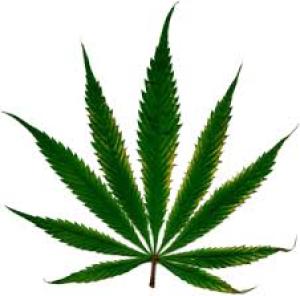
Connecticut Legalization Bill Filed. Rep. Juan Candelaria (D-New Haven) today introduced House Bill 5209, which would allow adults to use, grow, and sell marijuana. Candelaria introduced a similar bill last year that went nowhere. "I'm going to be pushing very hard," Candelaria said. "I'm going to be engaging my leadership in conversation to at least allow a public hearing." Gov. Dannel Malloy (D) said the same day he could only support medical marijuana. "That's as far as I'm comfortable going," the governor said.
North Dakota Legalization Initiative Effort Gets Underway. A group of Libertarian-leaning North Dakotans filed a petition with the Secretary of State's office Wednesday seeking to put legalization on the ballot this year. The initiative would allow adults to use, grow, and sell marijuana, and it would bar the state from requiring a license to do so. If approved, the group will have until July 11 to gather 13,452 valid voter signatures.
Vermont Police Dogs No Longer Trained to Sniff Out Pot. With an eye toward looming marijuana legalization, Vermont police are no longer training their dogs to recognize the smell of marijuana. "The class that is going through right now is not being trained to alert on marijuana odor," said Robert Ryan, head of K-9 training at the Vermont Police Academy. "We started talking about it last year and we made the decision for this class not to do marijuana."
Medical Marijuana
Elizabeth Warren Calls on CDC to Look at Marijuana as Response to Opioid Use. In a letter sent Monday, the Massachusetts Democratic senator asked the Centers for Disease Control and Prevention (CDC) to research how medical and recreational marijuana might help alleviate the widespread use of opioids. She asked the agency "to explore every opportunity and tool available to work with states and other federal agencies on ways to tackle the opioid epidemic and collect information about alternative pain relief options," including marijuana. She also asked the CDC to collaborate with other federal agencies to research "the impact of the legalization of medical and recreational marijuana on opioid overdose deaths."
California Bill Would Impose 15% Tax on Medical Marijuana Sales. State Sen. Mike McGuire (D-North Coast) Wednesday filed Senate Bill 987, which would impose the tax. "We made a commitment last year as we were working through the huge undertaking of setting statewide regulations for medical marijuana that we would follow up on a statewide excise tax," Senator McGuire said. "This needed revenue will make our communities stronger by focusing on the impacts of cultivation and use of marijuana, including funding local law enforcement and neighborhood improvement programs, state parks, drug and alcohol treatment and environmental rehabilitation." The new tax is expected to bring in more than $100 million a year in new revenues.